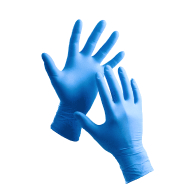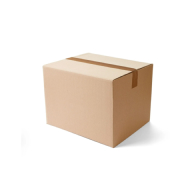BioPak Knife
Product description
Unwaxed knife made of FSC™-certified birch wood.
Indicates what the cutlery is made from, affecting environmental impact, durability, and compliance with regulations on single-use items.
Measurement from handle tip to end that determines reach, comfort, and suitability for different foods and serving contexts.
Indicates the utensil type (fork, knife, spoon) that determines functionality for different foods and dining needs. Essential for proper meal service.
The visual appearance of cutlery that coordinates with event themes or signals eco-friendliness. Affects presentation and complements your tablescape.
- Food Service
Request a free sample
Test first and buy later. Visit any product page to request your free sample.
Standards and labels
ISO 14001:2015 is a standard that specifies requirements for an environmental management system (EMS). It includes requirements for how companies should design, implement, maintain and improve their EMS to ensure that they minimize negative impacts on the environment and comply with environmental regulations. Test results can include information on how well the EMS is functioning, how well it is being followed, and how effective it is in reducing environmental impacts. The standard also includes requirements for how the company should document and record their EMS performance and continuously improve it.
Test results
Environmental Management PassedThe standard ISO 14001:2015 pertains to environmental management systems (EMS). A passed test result under this standard indicates that an organization's EMS meets the stringent criteria set forth for managing environmental responsibilities systematically. This ensures sustainable development while considering environmental impacts. Specifically, ISO 14001:2015 includes requirements for a framework that an organization can follow rather than establishing environmental performance criteria. It encompasses various aspects such as compliance obligations, planning actions to address risks and opportunities, and continual improvement. The test primarily involves evaluating the effectiveness of the EMS in supporting a company to achieve its intended outcomes regarding its environmental performance. If a company has passed this evaluation, it reflects their commitment to environmental stewardship, potentially enhancing their marketability and aiding in compliance with statutory and regulatory requirements.
EN ISO 9001:2015 is a standard that sets out the requirements for a quality management system (QMS). It is a set of guidelines that organizations can follow to ensure that they meet customer requirements and enhance customer satisfaction. The standard is based on the plan-do-check-act model and focuses on continuous improvement. It covers the design, development, production, installation, and servicing of products. Organizations can get certified to this standard, which means that they have been independently audited and found to meet the requirements of the standard. The certification process includes regular audits to ensure that the organization continues to meet the standard's requirements.
Test results
Service Reliability PassedEN 13432 is a European standard that sets out the requirements for the collection, transport and treatment of animal by-products not intended for human consumption. It covers the hygiene and safety requirements for these materials. The standard includes requirements for things like storage, transportation, and treatment of the by-products, as well as the equipment used in these processes. Possible test results would include measurements of things like temperature and pH to ensure that the by-products are being handled and treated properly.
Test results
Compostability PassedIn the standard EN 13432:2000, when a product receives a pass for compostability, it indicates that the product meets specific criteria for biodegradability, disintegration during composting, and the absence of negative effects on the composting process, including low levels of heavy metals and no adverse effects on plant growth. This standard outlines a rigorous test procedure where the biodegradation process of a material is quantified through measurements of CO2 evolution, with the requirement that at least 90% of the material must biodegrade within a specified time frame (usually six months). The disintegration is tested by composting the material and then screening the remaining fragments to ensure that no more than 10% of the original mass remains undecomposed on a dry matter basis after 12 weeks. The impact on compost quality is assessed through practical composting trials and ecotoxicity tests, ensuring that the compost can support plant growth without transmitting toxic substances. Consequently, products achieving a pass under this standard are considered environmentally benign at their end-of-life stage, contributing positively to the sustainability goals of waste management by returning biodegradable material to the natural ecological cycle effectively.
FSC 100% certification means that all the wood in a product comes from FSC-certified forests. To be FSC certified, forests must be managed in an environmentally responsible, socially beneficial, and economically viable way.
Food safe refers to the safety of food products that are used or consumed by people. In Europe, food safety is regulated by the European Union (EU) and the European Food Safety Authority (EFSA). These organizations set standards and requirements for food products to ensure they are safe to eat. To be considered "food safe" in Europe, a product must meet these standards and be free of harmful substances. This includes being free of harmful bacteria, pesticides, and other contaminants. Food products that do not meet these standards cannot be sold or used in the EU.
Duni delivery terms
Free delivery when you order more than 150,00 € from Duni
Supplier shipping fee 6,33 €
Brand minimum 150,00 €
41,99 €
Price per 10 packages (1 000 pcs)
0,042 € / piece
Shipping fee is 6,33 € for orders under 150,00 €
A carton contains 10 packages (1 000 pieces)
Need larger quantities?
Other products you may like
Recently viewed
Need help?
Get help from our experts
Other products you may like
Similar products you may like
Recommended for you
Duni
Delivery time: 3 business days
Orders from 150,00 €
Supplier shipping fee 6,33 €
Free shipping on orders over 150,00 €



Find +150,000 products from hundreds of brands
Autonomous sourcing platform
The most efficient way to source and order supplies for your operations
Sourcing
Ordering
List products you’re looking for and we’ll find the best products and prices for you – all for free.
Need help?
Get help from our experts
